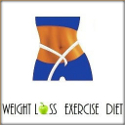-
Why Eating Normally is the Best Diet
Tuesday, July 8th, 2025by Nancy Clark, Registered Dietitian
Bathing suit season is right around the corner. Does the thought of shedding your winter clothing and exposing your body to the world send you into a panic? “Oh, no!”
When you have more flab on your body than you wish, worrying about it usually turns into plans to go on a diet. There are, of course, a plethora of choices: the Atkins Diet, the Banana Diet, the Cabbage Soup Diet, the Jenny Craig Diet, the Paleo Diet – the list goes on. The bad news is that none of these diets are effective in the long run.
I mean, think about it: if diets really did work, then everyone who has ever been on a diet would be fit and trim! Given that we are in the midst of an obesity epidemic, it’s clear that diet failure is widespread.
What most people fail to understand is that diets usually backfire and end up contributing to weight gain over the long run. A study done of teenagers who were followed from middle school through high school indicates that those students who were dieting at the time of the first survey were actually worse off five years later.
Many of them struggled with improper eating habits and some had a full-blown eating disorder. The students received no benefits from their attempts to lose their unwanted body fat. (1)
Why You Should Eat, Not Diet
Teenagers who are overweight commonly become adults who struggle with food for the rest of their lives. This is why we need to discourage dieting at an early age and instead focus our efforts on eating healthfully and appropriately.
If you don’t go on a diet in the first place, you won’t have to “blow your diet,” gorge yourself on cookies, and end up gaining weight. Eating normally – which means enjoying appropriate amounts of wholesome foods to fuel your body during the day – leads to the body finding its natural and appropriate weight.
Eating normally means enjoying a good balance of wholesome foods, but it also means not limiting yourself to only so-called “healthy foods.” That is to say, you don’t have to eat a “perfect” diet and beat yourself up when you don’t.
A good diet is a healthy food plan that includes 85% to 90% “quality calories” and 10% to 15% “anything goes.” Some days “anything goes” is an apple and other days “anything goes” is a brownie or a cookie.
Trying to eat a “perfect” diet typically results in depriving yourself of foods you truly want to eat. Sooner or later, you’ll end up binging on those foods, which is not the best approach.
Look at it this way: If you put a little girl in a roomful of dolls and tell her she can play with all the dolls except for the one with red hair, what is the first doll she’ll reach for? That’s right: the red-haired one. Therefore, if you like chocolate cake, but forbid yourself to eat it, what will you relentlessly yearn for? You guessed it: chocolate cake.
Learn to Take the Power Away from Food
 It probably sounds crazy, but the best way to take power away from one of your “binge foods” is to eat it more often, not avoid it! For example, if you love chocolate cake, try eating it every day until you get tired of it.
It probably sounds crazy, but the best way to take power away from one of your “binge foods” is to eat it more often, not avoid it! For example, if you love chocolate cake, try eating it every day until you get tired of it. What, you don’t believe me? Try this experiment: For one full week, eat your binge food every day instead of your usual breakfast, lunch, dinner or snack. (Trust me, you won’t die from malnutrition in a week!) Carefully observe what happens. I’ll bet that after just 3 days of non-stop chocolate cake, you’ll pine for Bran Flakes again!
And even if you want to keep on eating cake, a recent study indicates you can still take off the pounds by going on the Chocolate Cake Diet. In this study, the people who enjoyed chocolate cake for breakfast actually had better dietary compliance and ended up losing more weight than the subjects in the study who were told to eat “diet foods.” (2)
Learning to enjoy a daily food plan that includes a variety of mostly wholesome foods that are health-promoting, tasty and fulfilling is the ideal approach. It’s best to eat heartily at breakfast and lunch, in order to prevent a drop in energy and the cravings for sweets that will follow.
Make time for an enjoyable afternoon “second lunch” that serves to energize the end of your working day and helps curb your appetite for dinner. You’ll want to try to eat a little bit less at night – and thereby lose that unwanted body fat when you are sleeping. Your goal should be to wake up ready for breakfast, and thus perpetuate the cycle of fueling by day, dieting by night.
While they may seem simple, these suggestions to eat “normally” are difficult to put into practice for many dieters. People are afraid that once they start eating, they won’t be able to stop.
This need to overcompensate is called “diet backlash,” and is reinforced by years of “this is my last chance to eat cake so I’d better eat it all now before my diet starts again tomorrow!” Thankfully, there is a more peaceful and sane way to manage your weight.
“Normal Eating?” What’s That?
The points listed below constitute tips on eating appropriately. You need to trust that appropriate eating will lead your body to finding its appropriate weight. Eating specialist Ellyn Satter RD, (www.EllynSatter.com), author of Secrets of Feeding a Healthy Family, offers these definitions of normal eating:
- Normal eating is arriving at the table hungry and eating until you are satisfied. It is being able to select foods you like and eat them and truly get enough of them – not just stopping because you think you should.
- Normal eating is giving some thought to your choice of foods so that you get nutritious food, yet not being so restrictive and wary that you miss out on foods you enjoy.
- Normal eating is overeating at times; feeling stuffed and uncomfortable – or it can be under-eating at times and wishing you had eaten more. Normal eating is trusting your body to make up for your mistakes when eating.
- Normal eating is leaving some brownies on the plate now because you know you can have them again tomorrow – or it is eating more of them now because they taste so delicious.
- Normal eating is giving yourself permission to eat when you are happy, sad, or bored – or just because it feels good. Normal eating is three meals a day, or four or five – or nibbling on food throughout the day.
- Normal eating occupies a portion of your time and attention, but is seen as only one important area of your life.
- In a nutshell, normal eating is flexible! It can vary in response to your hunger, your schedule, your proximity to food and your feelings.
Want some help learning how to eat normally? Find a local sports dietitian by using the referral network at www.SCANdpg.org. Your body will thank you!
References:
1. D. Neumark-Sztainer D, M. Wall, J Gua, M Story, J Haines, M Eisenberg. Obesity, Disordered Eating, and Eating Disorders in a Longitudinal Study of Adolescents: How Do Dieters Fare 5 Years Later? J Amer Diet Assoc 2006 (4):559-568.
2. http://www.sciencedaily.com/releases/2012/02/120207133750.htm Daniela Jakubowicz, Oren Froy, Julio Wainstein, Mona Boaz. Meal timing and composition influence ghrelin levels, appetite scores and weight loss maintenance in overweight and obese adults. Steroids, 2011; DOI: 10.1016/j.steroids.2011.12.006
(published March 25, 2012)
 Nancy Clark, MS, RD, CSSD (Board Certified Specialist in Sports Dietetics) counsels both casual and competitive athletes at her office in Newton, MA (617-795-1875). She teaches her clients how to choose a daily food plan that helps them reach their weight, health and performance goals. Her Sports Nutrition Guidebook and food guides for new runners, marathoners, and soccer players offer additional information. They are available at www.nancyclarkrd.com and sportsnutritionworkshop.com.
Nancy Clark, MS, RD, CSSD (Board Certified Specialist in Sports Dietetics) counsels both casual and competitive athletes at her office in Newton, MA (617-795-1875). She teaches her clients how to choose a daily food plan that helps them reach their weight, health and performance goals. Her Sports Nutrition Guidebook and food guides for new runners, marathoners, and soccer players offer additional information. They are available at www.nancyclarkrd.com and sportsnutritionworkshop.com.


